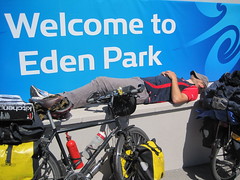newzealand 227
Tom and Jodie posted a photo:

| BULGARIA | PREVIOUS COUNTRY | NEXT COUNTRY | GEORGIA |

Istanbul Ottomans http://www.ottomansrugby.com/
Sadly missed the İstanbul 7s ın August (http://www.istanbul7s.com/)
Samsun Rugby Club – Facebook holding page
|
Hakan Unsal - Co-founder of Istanbul Ottomans, the representives of Turkey in the Mediterranean tri-nations. One of the founders of rugby in Turkey today |
 |
Istanbul – Leg 1 completion – 4,500km
 Whoever wrote that East meets West in Istanbul hasn’t been there, they really haven’t. It would be far more accurate to say that Istanbul creates East and West. I’m not going to waste a thousand adjectives describing this City. It isn’t even one City, instead it’s a community of cities, a network of hundreds of villages and 25 million individuals living either side of the historically glutinous Bosphorus. To describe Istanbul as a place where East meets West is like saying that Mecca is a convenient meeting place for Muslim backpackers.
Whoever wrote that East meets West in Istanbul hasn’t been there, they really haven’t. It would be far more accurate to say that Istanbul creates East and West. I’m not going to waste a thousand adjectives describing this City. It isn’t even one City, instead it’s a community of cities, a network of hundreds of villages and 25 million individuals living either side of the historically glutinous Bosphorus. To describe Istanbul as a place where East meets West is like saying that Mecca is a convenient meeting place for Muslim backpackers.
How Greenwich has held its own as the centre of the earth I am baffled, I just hope nobody here notices. Maybe the Turks haven’t figured out the Docklands Light Railway to discover it, and pray they don’t. I’ve enjoyed 20 minutes in the Maritime museum just as much as the next man, but after visiting the splendour of the Blue Mosque and the museum at Hagia Sofia – a church with unrivalled religious and architectural importance, I can only assume that somewhere along the line Lord Coe was involved in Greenwich’s bid.
 We can say with pride that we cycled the entire way into Istanbul. The chaos that greeted us on the ten lane highways was expected, so too were the thousands of trucks, whistling passed only inches from our panniers. What we had not prepared for was the vastness of the mayhem. We had long since lost signs for Istanbul when two young daredevils on mountain bikes pointed out that we were already in Istanbul. “Where you want?” they would ask. “Istanbul” we would shout over the thunder of lorries, “Yes, but where you want?” they would repeat. We tried to ask for the centre, or “centrum” as this seems to be the universal word. Presented with expressions of disbelief from our new friends we asked a cab driver, kind enough to have pulled over. Perhaps kindness wasn’t his only motivation as by now our four bikes were blocking the two lane junction exit. He patiently explained to us that the centre was ahead of us, “just keep going straight” he said. He successfully got us moving again and onwards we went. We soon realised that this wasn’t going to be a simple task. We didn’t know where we needed to go as we hadn’t checked our e-mails in days. Nor did we have confidence that we would recognise exactly when we had reached the centre. After an hour of searching we found some unlocked wifi and located our host address. Fortunately we were within reach of a coastal road that would take us most of the way there, the downside, it was still a further 60km away. It defies belief that within a city you could pedal so far but make so little progress on a map. We were still no more than a third into the City but after 6 hours had at last found our meet, a multilingual student from Afghanistan called Zabi.
We can say with pride that we cycled the entire way into Istanbul. The chaos that greeted us on the ten lane highways was expected, so too were the thousands of trucks, whistling passed only inches from our panniers. What we had not prepared for was the vastness of the mayhem. We had long since lost signs for Istanbul when two young daredevils on mountain bikes pointed out that we were already in Istanbul. “Where you want?” they would ask. “Istanbul” we would shout over the thunder of lorries, “Yes, but where you want?” they would repeat. We tried to ask for the centre, or “centrum” as this seems to be the universal word. Presented with expressions of disbelief from our new friends we asked a cab driver, kind enough to have pulled over. Perhaps kindness wasn’t his only motivation as by now our four bikes were blocking the two lane junction exit. He patiently explained to us that the centre was ahead of us, “just keep going straight” he said. He successfully got us moving again and onwards we went. We soon realised that this wasn’t going to be a simple task. We didn’t know where we needed to go as we hadn’t checked our e-mails in days. Nor did we have confidence that we would recognise exactly when we had reached the centre. After an hour of searching we found some unlocked wifi and located our host address. Fortunately we were within reach of a coastal road that would take us most of the way there, the downside, it was still a further 60km away. It defies belief that within a city you could pedal so far but make so little progress on a map. We were still no more than a third into the City but after 6 hours had at last found our meet, a multilingual student from Afghanistan called Zabi.
 Zabi is a fantastic guy. He has now tirelessly hosted us for 5 days, and in that time has entertained us with untold stories from his homeland and past. Some stories had us in stitches, but others remind you of how different things are across the world, and you feel guilty for growing up in such a sheltered country. We are all of the same generation, but yet experienced very different environments. Life is quite simple back in Afghanistan, you watch what you say and do. For Zabi I won’t talk more about this, but as a result of our conversations we have now amended our route plan through the next stage. He has a lot of relevant experience and knowledge and we have no point to prove. We are both very grateful to Zabi for all the wonderful breakfasts and dinners and for our first Afghan cuisine. His mum would be proud.
Zabi is a fantastic guy. He has now tirelessly hosted us for 5 days, and in that time has entertained us with untold stories from his homeland and past. Some stories had us in stitches, but others remind you of how different things are across the world, and you feel guilty for growing up in such a sheltered country. We are all of the same generation, but yet experienced very different environments. Life is quite simple back in Afghanistan, you watch what you say and do. For Zabi I won’t talk more about this, but as a result of our conversations we have now amended our route plan through the next stage. He has a lot of relevant experience and knowledge and we have no point to prove. We are both very grateful to Zabi for all the wonderful breakfasts and dinners and for our first Afghan cuisine. His mum would be proud.


There are two figures responsible for rugby being played in Turkey. The first is Mustafa Kemal Ataturk who simply founded the country of Turkey in 1938. Founding the country is a necessary step in enabling rugby in that country, but sadly he made no further progress in this field. Turkey was a baron rugby desert until December 1999 when a man named Hakan Ünsal initiated the first rugby club. Most clubs start with a team and then build a structure on top. Hakan was content to start a club, then work about getting a rugby team to represent it. Although Turkish, his family had moved him to England as a young boy where he had attended school in Surrey. It was here that he developed a love for the game, one that he was not going to leave behind when relocating back to Istanbul. He managed to communicate with a small group of players with overseas rugby experience and between them they organised some early training sessions with just five players. They slowly built and recruited through the usual methods; plying friends with alcohol and compliments until they commit. He taught the laws of the game to his team and then developed early skills. Two of his early apprentices later left to start other rugby teams and spread the word.
 Hakan and his disciples (Marc, Dennis and Chris) kept their eyes out for opposition but still the only club, they were forced to seek teams belonging to the Navy or overseas corporate. Eventually they gathered 15 players and got a fixture against a Nato XV, this was the first official rugby match in Turkey.
Hakan and his disciples (Marc, Dennis and Chris) kept their eyes out for opposition but still the only club, they were forced to seek teams belonging to the Navy or overseas corporate. Eventually they gathered 15 players and got a fixture against a Nato XV, this was the first official rugby match in Turkey.
The next match was organised against a team from nearby Greece, Athens Spartens. It was a home and away fixture, the first played in Greece. Despite the Greek team having 10 years of experience Hakan’s men triumphed in both fixtures. They now needed a name, and with little history to reflect on they decided to create a name in a similar vain to the Spartens. The Istanbul Ottomans were born.
For the next few years their only fixtures were friendlies against newly formed clubs Kadıköy RC, Bakırköy RC and Cyprus Pumas as well as visiting neighbouring countries. In 2006/2007 the committee at the Ottomans called a meeting with the board from the other Turkish side to discuss creating a “Turkish Rugby Union” and a national league structure. Hakan was voted as the president of this union and the first league was organised in 2007/2008. The Ottomans were victorious in this first chapter of Turkish rugby.
Further success for the Ottomans came from the Ameland Beach Rugby 7s. They joined the competition in 2008 finishing 4th, but returned in 2009 to win the tournament. A feature of this beach rugby tournament is the social manner in which teams participate, both on and off the pitch. I met with the Ottomans team at a training session, it was like being back at Footscray RFC, fun first, then rugby. One player, Ozer, fondly described the Ottomans as a “drinking team with a rugby problem”. They are well managed, well attended, and if you are in Istanbul looking to establish a network of friends, look them up. Incidentally, if you are looking to tour, they have their own pub space and hotel in the heart of the city to host you.

Turkish Rugby has suffered greatly at the hands of Turkish politics, the current sItuation is that after ten years, Turkish rugby is still not recognised by FIRA or the IRB. Turkish officials won’t allow the creation of an independent rugby union to organise the education, structure and promotion of the game. Instead they have added rugby to a separate tri-sport federation containing American Football, Softball and Baseball. In a move that cited infamous conspiracy theories, rugby was added to the federation before rugby had even been brought to Turkey. In a now quad-sport federation run by government officials and Americans, it seems a near impossible task to release the sport (and the associated government funding) to individuals who could progress the sport and introduce successfully to a younger generation. The saviour of Turkish rugby could lay with the Olympics. In Olympic law, it states that countries competing in any event must have an independent union representing the sport. With Rugby 7s being included in the Brazil Olympics 2016, Turkey would need to alter their structure in time to attempt qualification.
One ex-Ottoman who left Istanbul to live in Holland has not stopped his work to build Turkish rugby. Hasan Akman set about giving Turkish rugby a boost himself. He developed plans for hosting an international 7s tournament in Istanbul. Ably assisted by Hakan, Emre and his colleagues at the Ottomans, the group organised the stadium, facilities, promotion, sponsorship and legal essentials for running a tournament on this scale and so the inaugural event is now set to take place on 7th/8th August 2010. It features an exciting line up with national sides from Germany, India and Libya competing against teams from Dubai, Egypt, Bosnia & Herzegovina, Kazakhstan, Turkey and the UK. It should make a fascinating event and will no doubt raise a few eyebrows across the rugby world. (http://www.istanbul7s.com/)
Nevermind the history of Istanbul, today’s City is as modern as any city in Europe, with sporting facilities a plenty. With a national population of nearly 74 million and a successful history in weightlifting we can expect to see strong progress made in rugby once the proverbial egg is rolling. Even newer is the emergence of Turkish women’s rugby coached by Hakan himself. After learning of the traditional national sport of Yağlı güreş, meaning “oiled wrestling”, there can’t be a man alive who won’t join me in wishing Hakan the best of luck with this project.
When we left Twickenham Stadium on May 1st, we had set out to discover the next powerhouses of rugby. If the rugby forces here can shake the oppressive shackles of Turkish bureaucracy and achieve IRB recognition, I think we may have found our answer. The rugby spirit is here, the individuals are here, and with the culture and population lies huge potential.
We have enjoyed a fantastic stay in Istanbul, thanks to our host Zabi and to Hakan and his wife Esbie. Hakan has introduced us to the delights of Turkish streetfood, from mussels to potatoes, and from mojito icecream to chicken breast pudding whilst they have all provided us with invaluable advice and assistance in planning our next leg. It will be hard to leave tomorrow morning, but leg 2 awaits us, the newly amended voyage to Islamabad where we will regroup to prepare for the Himalayas crossing.
‘Watch out for the Black Sea people’ they told us in Çankırı, ‘they move like fish’ they said. The girl students that warned us were in fact referring to the regional dances performed by the local people. ‘It’s all in the hips’ has taken a whole new meaning after witnessing these escapology mime artists in action. Their movements combined a blend of Irish jigs, tap dance and the sort of wiggling one witnesses in touch rugby games when trying to evade that outstretched arm.
When arriving on the Black Sea at Samsun we were confronted with a much bigger species of fish, the shark. The Samsun Sharks no less: wild unpredictable creatures, ferocious and growing in numbers. Just when you thought it was safe to go back in the water……
I am of course referring to the newly established rugby club on the Black Sea, Samsun Rugby Club aka Samsun Sharks.
Our host, Mustafa Sagir met with us shortly before a Wednesday evening training session and walked us to the ground. Mustafa, as common in small amateur rugby clubs performs multiple functions. He is the founder, trainer, fixture secretary, captain, treasurer, manager, kit designer and media spokesman. Media spokesman in Turkey usually carries two core responsibilities. Firstly, explaining to the media that they play rugby and not American Football, and then secondly, after the articles had been printed incorrectly, explaining again that they played rugby and not American Football. I have witnessed this first hand across Turkey. In one village I explained to a young lad infinite times that the ball was ‘Rugby ball…… No American Football’. After 10 minutes he could even say ‘Rugby’ so when his friend approached to join in I was disappointed that my pad wan used the word American Football in his greeting.
None were more surprising to me than the newspaper interview in Samsun. We sat at an office desk holding a rugby ball and through Mustafa we answered questions on rugby and our trip from our Turkish journalist. I explained that we were here in Samsun to visit Samsun Rugby Club, why I felt Turkey could be successful at Rugby and how the culture here complemented the spirit of the sport. After a fairly successful and thought provoking 20 minutes on camera, he tried to wind up the session by asking why we had brought a ball into the office. At this point Mustafa turned to me and I could see the 4 years of frustration in his eyes. ‘this guy still doesn’t realise that this is a sport’ he said. ‘really?’ I offered, albeit unhelpfully. The next 5 minutes were spent with Mustafa waving a ball in front of this man and explaining step by step what the game was about. Oddly the journalist spent the next 5 minutes trying to talk over him and in his silent moments staring with a glazed expression. To me, this was comedy, and I wish it was I who had the camera, but worryingly for rugby in Turkey, this is the voice of media, and if after a 20 minute interview about rugby, they don’t understand that it is a sport, how is the article going to reach out to the next generation of potential players?

So back to Samsun Rugby Club, and our first training session. Even after a hot 115km cycle I couldn’t resist the opportunity to join in with the touch rugby at the start. There were at least 14 other players down at this summer training session, a turnout that most coaches would snatch out of your hand. it was great fun, mainly due to the quality of the guys there. This wasn’t just a group of randoms pulling together to form a team. This was a blend of pace, power and skill. The pack was compiled from wrestlers, basketball giants and an English teacher from Rugby in England. The backs, from professional athletes, footballers and doctors. There was a very old fashioned, traditional feel to the teamsheet.
 One player of particular mention was Sarjan ‘the rabbit’. At 21 years old he is the fastest man in Turkey running the 100m in 10.7 seconds. Once the ball is safely in his hands people can only watch and laugh as he dances round opposition scoring with practically every touch. He’s pure pace and balance. With some proper coaching and professional work he would make an exceptional find for any club in England. it’s a big call but I say that the Samsun ‘rabbit’ would run whisker to whisker with Bryan Habana and his cheetah.
One player of particular mention was Sarjan ‘the rabbit’. At 21 years old he is the fastest man in Turkey running the 100m in 10.7 seconds. Once the ball is safely in his hands people can only watch and laugh as he dances round opposition scoring with practically every touch. He’s pure pace and balance. With some proper coaching and professional work he would make an exceptional find for any club in England. it’s a big call but I say that the Samsun ‘rabbit’ would run whisker to whisker with Bryan Habana and his cheetah.
 Another notable mention was a new contender to biggest amateur player on the planet. At 2.06m tall and weighing 120kg is ‘little’ Mehmet. Comically ‘big’ Mehmet was already at the club playing number 9 (at 1.65m and 60 kg!)
Another notable mention was a new contender to biggest amateur player on the planet. At 2.06m tall and weighing 120kg is ‘little’ Mehmet. Comically ‘big’ Mehmet was already at the club playing number 9 (at 1.65m and 60 kg!)
Now, let’s talk briefly about the history of rugby in Samsun. Mustafa was a professional volleyball player for 9 years but grew gradually tired of the sport as the camaraderie between players disintegrated at the highest level. He longed for a more honest game, one where politics were thrown from the arena and differences could be settled on the pitch and left there. As a boy, he had sat with his cousin Engin ‘The Sailor’ (for reasons that will be explained in the book) and had watched Pacific island clashes on Eurosport. This was a sport for Mustafa. He wanted to grow scruffy dreadlocks and go crashing through tackles sending bodies in all directions, he loved the intensity of the match, the pace and ambition. So congratulations go to Fiji for inspiring Black Sea rugby, and to Eurosport for not broadcasting scrappy turgid affairs from Murrayfield in the 90s instead.
in 2006 he finally threw in the towel on Volleyball and sat restlessly watching reruns of Jerry Springer, or more probably a Turkish equivalent. it was then that he recalled those early years watching this strange foreign sport and wondered if it existed in Turkey. From the internet he discovered the Ottomons (as I had done too) but little else outside of Istanbul. This meant starting from scratch. He e-mailed the 2 established Istanbul clubs and asked for advice on setting up a team. As a trained sports lawyer he knew about the legalities, but what he wanted was the rugby laws themselves. He had no idea of the specifics but wanted to learn them and teach the people of Samsun. Once these were in place he was ready. With no rugby balls East of Istanbul he placed his hands on an American Football, then proceeded to knock on every door in the university campus trying to organise a practice. When asked why he didn’t have any pads or protective gear, he said they didn’t have the Money to buy these at present. it was easier than the truth. 50 players turned out for the first practice! A few ‘wide receiver’ passes were made during warm-up, but then Mustafa explained that due to the lack of funds and protective gear all passes must be backwards. These were small deviations on the rules and fairly standard in the circumstances.
Mustafa’s account of the first training indicate that this was a bone crushing affair. The guys piled into each other in American Football style for 2 hours. He admitted having serious concerns about what he had done. This wasn’t anything like Eurosport. With no idea of the rules and with little interest in the ball, he could only work on the principal of ‘last man standing’ when choosing his squad to progress. in this way the 50 players became 20 after the first Samsun ‘Royal Rumble’ with losers being literally thrown into the stands. if nothing else, you’d imagine that the remaining 20 wrestlers, kickboxers and martial artists be fairly tasty at the breakdown.
Under the guidance of Mustafa, and with regular training 3 or 4 times a week, the squad developed from a group of cannonballs, into a refined unit with each player selected and crafted into a position. He sourced some basic equipment and ordered some balls from Georgia. When left with a kit issue, he even drafted up designs for some tightfit rugby shirts, created a team badge and ordered a tailor to stitch these out of local fabric. The results were impressive. He has gifted me one of the last batch and I would gladly wear it over the parachutes that most clubs dish out on a Saturday morning. ‘Here you are backs – 7 props shirts for you’…… why do we do this?
Next, with the help of a local blacksmith, they handcrafted a scrum machine from spare parts and DiY materials. The club was now in place but more importantly the squad had become firm friends. They had developed a team spirit and a sense of fun. Everyone has found themselves a nickname and the changing room now sees the same pranks and jokes that you’d have found back home. You don’t find this in the iRB rule book, so it seems that the culture of rugby is silently embedded into the laws of the game.
In 4 years from nowhere, Mustafa has created a rugby club with all the same characteristics that make the sport a favourite with millions. The Sharks are off to the Istanbul 7s in August to do battle with national teams from Germany, Libya and India, I wish I could be there with them.

| BULGARIA | PREVIOUS COUNTRY | NEXT COUNTRY | GEORGIA |
Tom and Jodie posted a photo:

Tom and Jodie posted a photo:
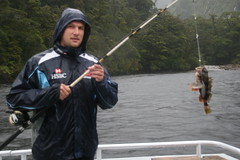
Tom and Jodie posted a photo:
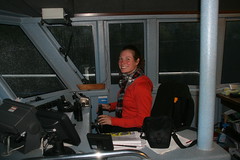
Tom and Jodie posted a photo:
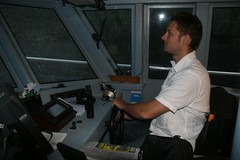
Tom and Jodie posted a photo:
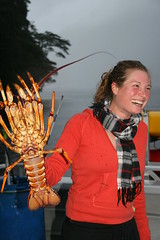
Tom and Jodie posted a photo:
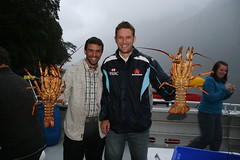
Tom and Jodie posted a photo:
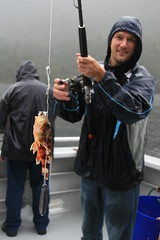
Tom and Jodie posted a photo:
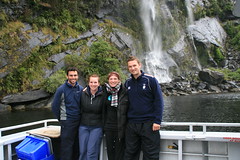
Tom and Jodie posted a photo:
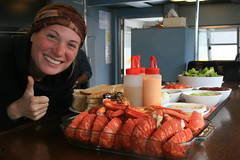
Tom and Jodie posted a photo:
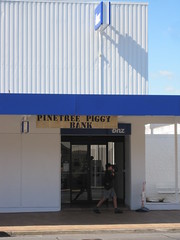
Tom and Jodie posted a photo:
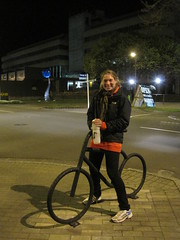
Tom and Jodie posted a photo:
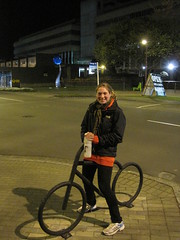
Tom and Jodie posted a photo:
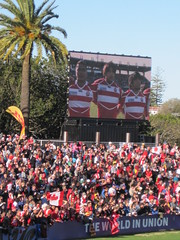
Tom and Jodie posted a photo:
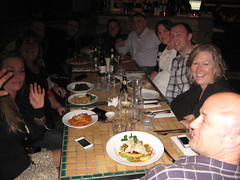
Tom and Jodie posted a photo:
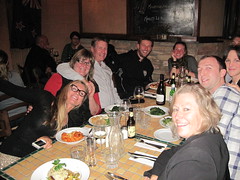
Tom and Jodie posted a photo:
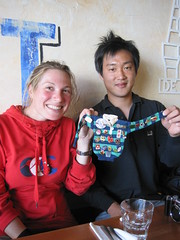
Tom and Jodie posted a photo:
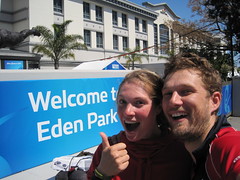
Tom and Jodie posted a photo:
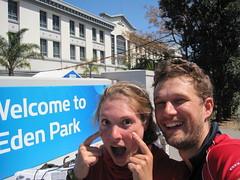
Tom and Jodie posted a photo:
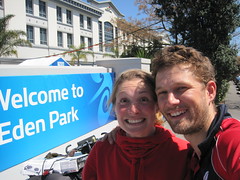
Tom and Jodie posted a photo:
